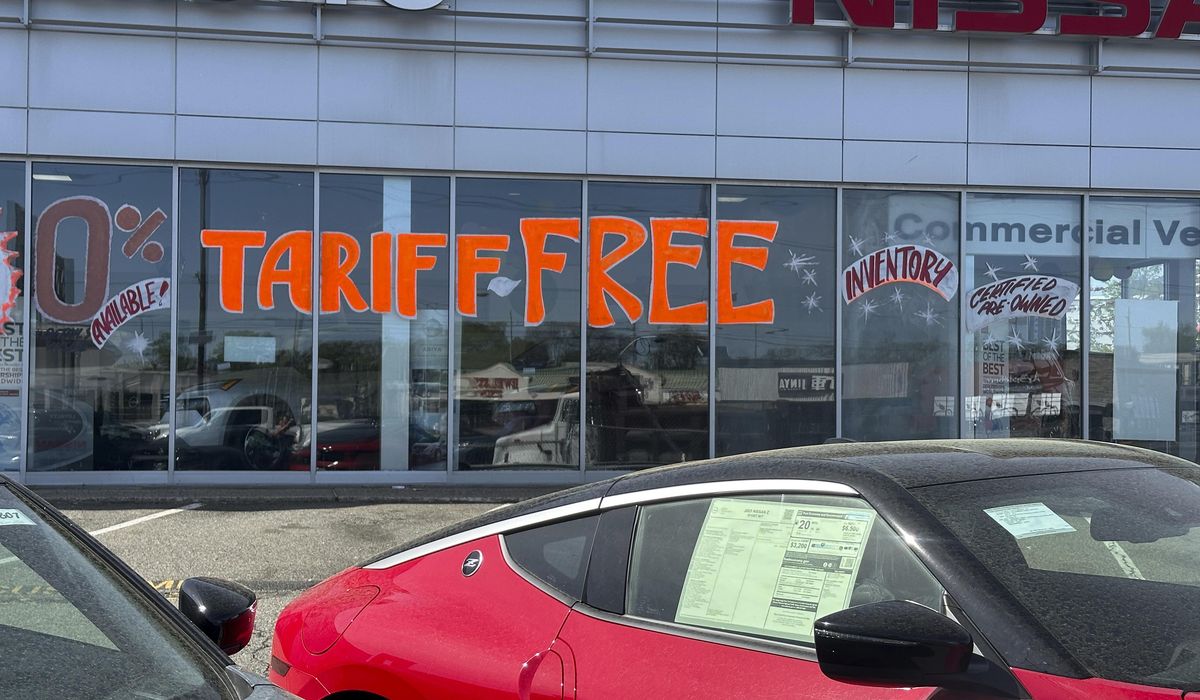


President Trump says he’s optimistic about a trade deal with India, but many countries will be “disappointed” because he plans to assign tariff amounts to them ahead of a July 8 deadline to strike trade deals.
Mr. Trump announced hefty levies on dozens of trading partners in April, then paused them for 90 days to allow space for negotiations on trade barriers.
That period is almost up, and Mr. Trump said it will be impossible to land deals with the litany of countries that want to negotiate.
“We’re gonna send out a letter, and we’re just going to tell them what they have to pay to do business in the United States,” Mr. Trump said Friday.
The Trump administration struck a deal in principle with the U.K. that opened British markets to U.S. farm goods and other products in exchange for some tariff relief for the British side.
The U.S. and China also have a framework to encourage dialogue on deep trade issues.
Yet other deals haven’t been forthcoming, raising questions about whether the administration would eke out pacts, grant an extension or assign tariffs.
Mr. Trump, speaking at a White House press conference, said he’s ready to name a tariff number for most nations.
“Some will be disappointed because they’re going to have to pay tariffs,” he said.
Mr. Trump said he could extend the July deadline but prefers to settle things earlier by sending out letters to countries assigning them a tariff amount. The administration is unlikely to waver from a baseline tariff of 10% on imports, so the key question is whether Mr. Trump lands on much higher levies or adheres closer to that baseline for most countries.
Tariffs are taxes or duties paid by importers on the goods they bring in from foreign markets.
Mr. Trump says tariffs are a great way to force companies to return to America or keep their operations in the U.S., employ American workers and create revenue to fund domestic programs. He said a number of companies are investing billions of dollars in the U.S. to avoid tariffs.
Foreign countries don’t pay the tariffs directly to the U.S. Treasury. In many cases, U.S. companies will pay the levies, and they might pass on at least some of the cost to consumers through higher prices.
Some U.S. companies have announced price increases, citing tariffs, but doomsday scenarios haven’t come to pass. The tariffs may start to bite later this year, depending on their ultimate levels.
The Federal Reserve has been reluctant to cut interest rates because of the uncertainty, angering Mr. Trump.
The president said Friday his tariffs haven’t caused prices to soar, so the Fed has no reason to waffle on rates.
“We have less inflation than we did before,” he said.
Mr. Trump has repeatedly pointed to the billions in revenue that tariffs bring into the U.S. Treasury.
He also wants to leverage tariffs to close trade deficits, or situations in which countries sell plenty of products to American consumers but don’t buy nearly as much from U.S. producers.
There are “some countries that are used to ripping us off, to be honest with you,” Mr. Trump said.
The U.S. had a $295.4 billion trade deficit with China in 2024.
Mr. Trump wants Beijing to open up its markets to U.S. goods and correct trade practices he views as unfair, but negotiations have been tough.
Unlike countries that came to the negotiating table, China retaliated against Mr. Trump’s tariffs by imposing hefty levies on U.S. goods in April, sparking a trade war.
A de-escalation meeting in May knocked down sky-high tariffs from both sides. The U.S. is charging a 30% tariff on Chinese goods, and China is putting a 10% tariff on American goods that cross its borders.
Both sides had gripes about the other nation’s behavior, sparking the follow-up meeting in London.
Securing licenses for rare earth minerals from China is the main win for the U.S. in the London framework.
One of the minerals, samarium, is used in heat-resistant magnets that are critical components of missiles and fighter jets.
China expects to get relief from American export controls on high-tech goods, along with U.S. visas for its students.
“China will review and approve the export applications of controlled items that meet the conditions in accordance with the law,” China’s Commerce Ministry said Friday. “The United States will cancel a series of restrictive measures taken against China accordingly.”
• Tom Howell Jr. can be reached at thowell@washingtontimes.com.
